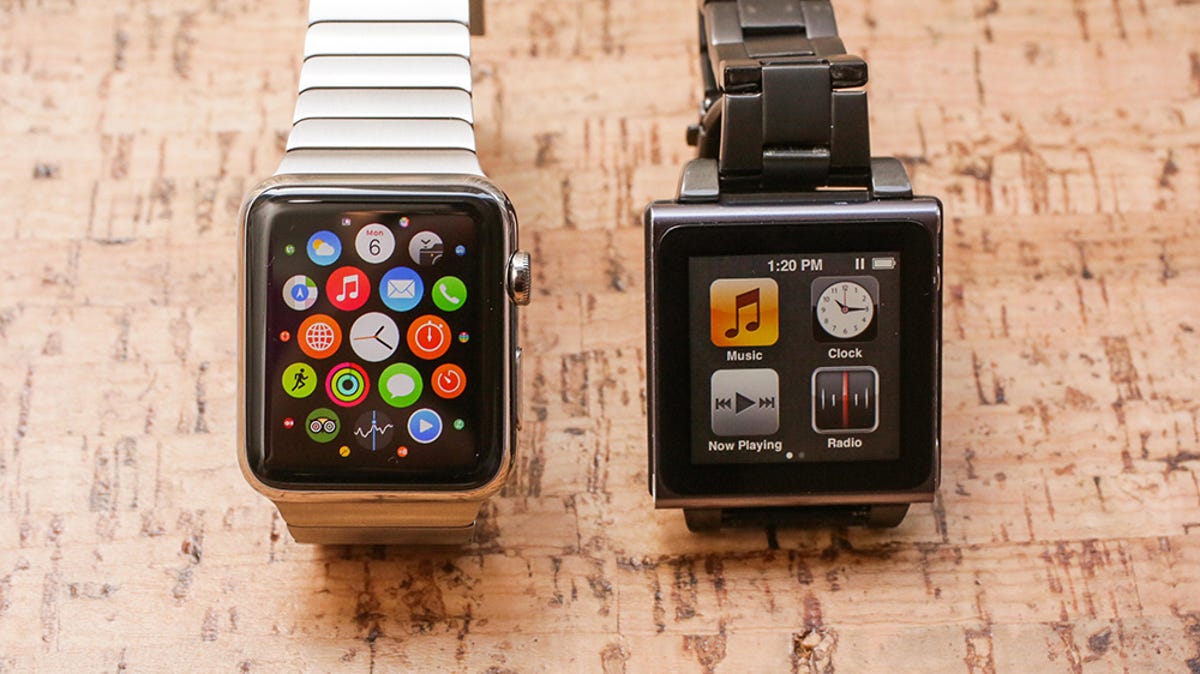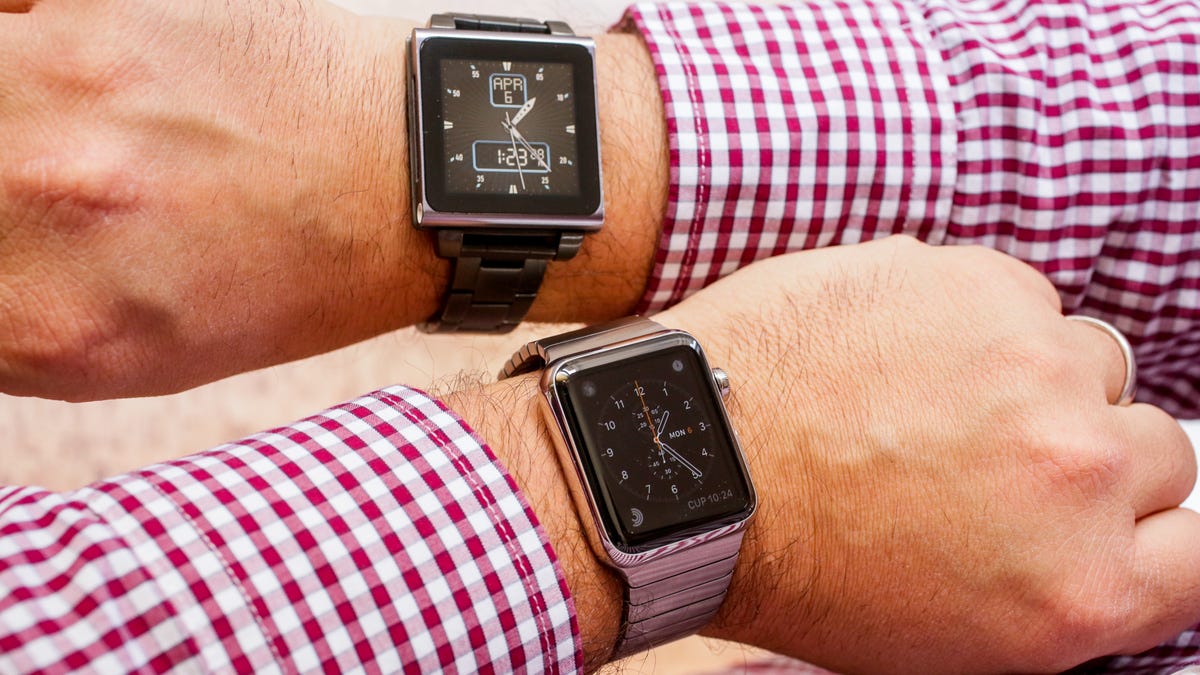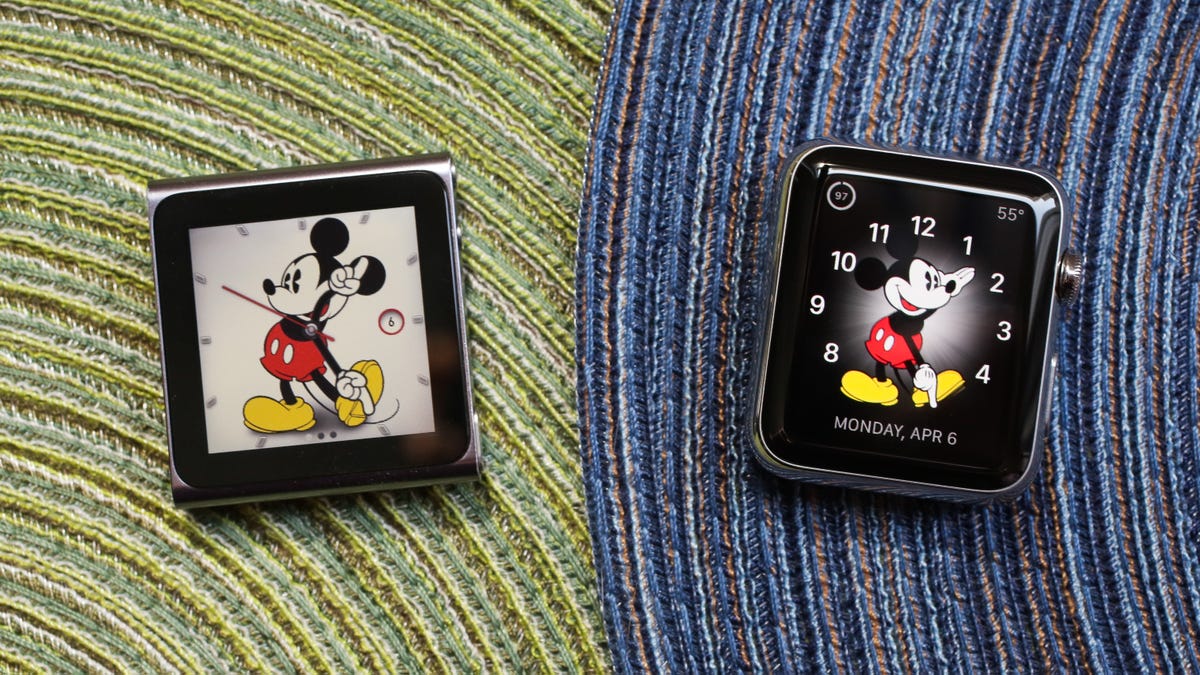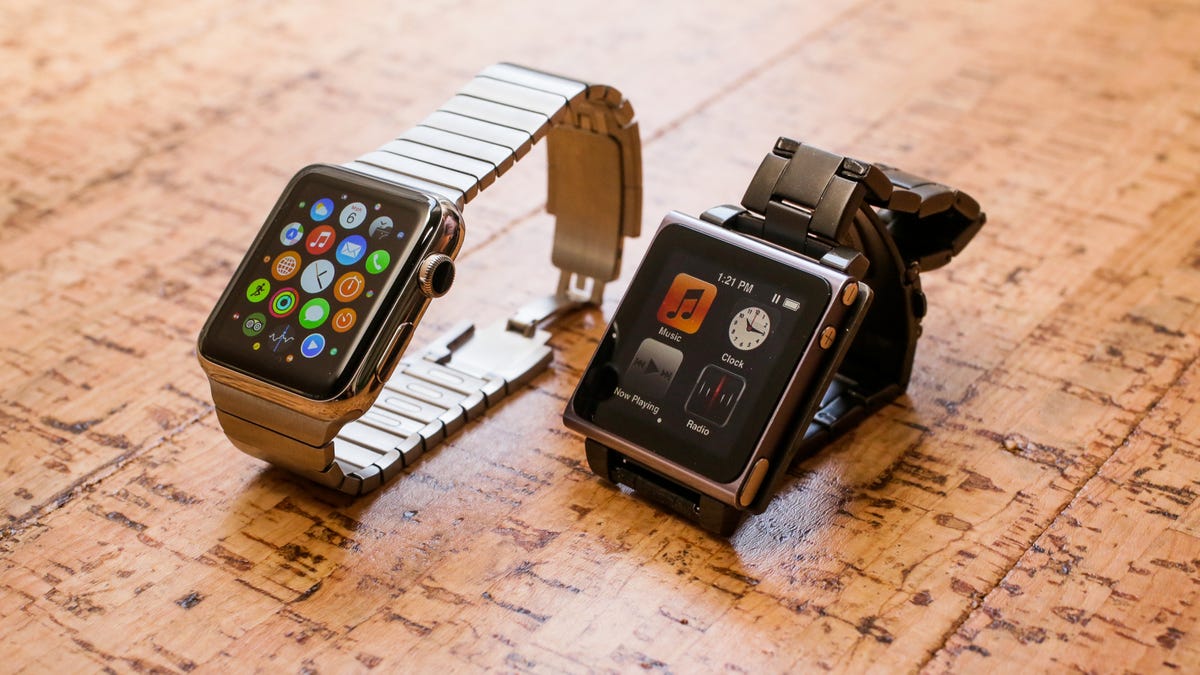

Now playing:
Watch this:
Apple Watch vs iPod Nano watch: Comparing Apple’s two…
1:30
Does the Apple Watch feel familiar? It should. Apple had a product that fit on your wrist. It was called an iPod.
2011 feels like yesterday to me, but it was four years ago. Lots of things were the same: Marvel movies were still popular in theaters. The MacBook Air looked the same as it does now. I still used Facebook and Twitter. I was still working at CNET. I still had a beard. And, I wore an Apple watch… in the form of an iPod Nano.
The sixth-gen iPod Nano was a clip-on device. Small, like a Shuffle, but with a touchscreen. People wondered why it needed to be so small, and so expensive ($129 for 8GB). Then the funniest thing happened: people started making wristbands for it.

Sarah Tew/CNET
A wearable Apple gadget
It was the weirdest, coolest idea. An iPod for a watch? I bought a Nano that fall, even though I didn’t need one. Part of that was the price: I splurged and paid the extra $20 for the 16GB version. And I got a Hex metal band that I tried on it. Total cost for all of that would have been around $220.
I wore it as a novelty. But it did work as a watch: Apple had 18 watch faces on it, including animated ones, round ones, digital ones and Mickey Mouse. Not just Mickey: Minnie, Kermit and Animal, too.
It ran apps! Not many. It had its own music player, of course, but also an FM radio with DVR-like pause and rewind functions, Nike+ fitness tracking (basically, a pedometer), Voice Memos, a Photos album and an iTunes U mini-app for, well, university lectures.
It had a headphone jack! I could plug my own normal headphones in, and listen to music. It would snake awkwardly down my arm and sometimes dig into my wrist. But it worked, and didn’t require battery-powered wireless headphones.


Sarah Tew/CNET
It wasn’t water resistant! Not much, anyway. It had a headphone jack, and a big, gaping 30-pin connector, along one side. When it rained, I pulled down my sleeves.
It had to be synced with iTunes! This iPod didn’t have Bluetooth: that came in the taller 2012 version, the last Nano to be made to date. It was completely unable to interface with the iPhone. I needed a 30-pin-to-USB cable to plug into my computer, where I’d be forced to deal with iTunes and hope my music synced properly. From there I could also convert photos from iPhoto down to compressed ready-to-read-on-the-iPod versions, or add podcasts.
It had decent battery life! The Nano could play music for 24 hours (our CNET test ran for 34 hours), and last for a few days as a wrist-worn clock. But it was always offline. If you used it for fitness tracking during the day, it needed daily recharging. If you used the radio (which I did when I went to New York Jets games at the stadium to follow along play by play), the battery would die in just a few hours.


Sarah Tew/CNET
Family resemblances
The Apple Watch is a lot like that Nano: it has a different collection of watch faces that are also beautiful to look at. It plays music. It has fitness tracking. It stores photos for wallet-styling viewing. But it lacks a voice memo app, oddly. It doesn’t have an FM radio. And to play music on it, you need to pair Bluetooth headphones: there isn’t a headphone jack anymore.
Apple Watch has a whole lot more, obviously: complete and continuous Bluetooth connectivity to the iPhone. No need at all to sync with or even sniff a PC. Apple Pay for payments. Messages. A microphone and speaker for dictating messages and making calls. Its OLED display is much brighter and crisper than that old Nano display, and is force sensitive. And, yes, that spinning digital crown.


Sarah Tew/CNET
But the Apple Watch is more expensive: it costs a minimum of $349. Yes, it comes with a wristband for that price, but it doesn’t come with headphones (the Nano did). It also requires an iPhone 5 or newer: the Nano worked with any Windows or Mac computer that could run iTunes. And it didn’t care what sort of phone you owned, or even if the phone was nearby at all.
The old Nano had its own advantages: a similar amount of storage space (8GB), but more could be used for music: on the Watch, you can only use 2GB for tunes. And you could go up even further, to 16GB, unlike the Apple Watch. And the Nano didn’t need to always be a watch: it could be a clip-on device for your clothing, or a shirt sleeve, or it could sit in your pocket.
Simplicity: Not such a bad thing
The Nano Watch had something else going for it: it was disconnected. I wasn’t getting messages. I’d listen to music and be in my own space. It was decidedly un-social, but somehow more personal.
It was a little goofy, but it worked. And it did just a few things, but it did them well.
The Apple Watch just might be the new iPod. But it isn’t exactly the same thing. It’s fancier, and it’s probably better…but I still like taking that old Nano Watch for a spin. Maybe it can point the way to where a new Apple Watch-inspired iPod alternative could evolve next: more affordable, pared-down, simpler.
It wouldn’t be such a bad way to go.



